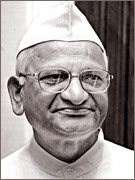Non-Governmental Organizations and non-development
 The Left movement in Sri Lanka was led by a small group of
intellectuals, who forged a coalition with the workers and farmers. As
the movement built up, it was joined by more members of the
intelligentsia, who provided part of the middle-level leadership. The Left movement in Sri Lanka was led by a small group of
intellectuals, who forged a coalition with the workers and farmers. As
the movement built up, it was joined by more members of the
intelligentsia, who provided part of the middle-level leadership.
These artists and intellectuals were driven by a spirit of
nationalism, combined with a feeling of sympathy for the poor. Their
participation in the movement was segregated from their careers, which
latter provided them with their means and income.
When the left parties entered the government, it was this cohort of
intelligentsia which provided it with its cadre of administrators,
chairpersons and directors of state institutions and advisers.
New era
The classic example was Dr Senaka Bibile, the founder Chairman of the
State Pharmaceuticals Corporation. However, there were many others, who
contributed to the development of Sri Lanka through their participation
in politics and through their own careers.
 |
 |
| Anna
Hazare |
Arundhati
Roy |
In the 1980s the drift of young intellectuals to the Left suddenly
stopped. This was due mostly to the proliferation of an alternative: the
Non-Governmental Organizations (NGOs).
Of course there had been NGOs before this, such as the Christian
Workers' Fellowship Marga Institute and Sarvodaya, which did much
sterling work. These organizations were principally involved with the
development effort, both economic and social.
However, the new era saw the spread of so-called 'civil society' as
never before. The new wave of NGOs recruited, by and large, the young
intelligentsia who would normally have been attracted to political
organization of the Left and centre.
Unlike political organizations, which depended primarily of the dues
of members and contributions of supporters, the NGOs actually paid the
young intellectuals to do what they loved. Moreover, they were offered
the prospect of conferences and workshops overseas, a chance to travel.
National development
The NGOs gradually transformed the intelligentsia from a force
working for social change and national development to a body of
pen-pushers concerned primarily with their own financial advancement,
obsessed with trips abroad.
Many of the people in 'civil society' may have pure motives or may
have had pristine motives when they began. However, the atmosphere of
corruption, of personal ambition and of greed which envelops the NGO
sector tends to leave all of them tainted.
This was achieved by means of funding. This is provided, of course,
by people who have the funds, which are donor foundations sponsored by
the large multinational corporations, by Western governments or by
right-wing religious organizations.
The sources of funding of the Ford Foundation and the Hewlett-Packard
Foundation are pretty obvious. The same is the case with Canada's CIDA,
Norway's NORAD and Sweden's SIDA. The feudal-capitalist complex owned by
the Duke of Westminster funds the Westminster Foundation.
Other sources of funds may not be so obvious. The Dutch NGO, HIVOS
has been accused of receiving funds from oil multinationals.
Social research
The sums that are skimmed off these benevolent transactions can be
quite substantial. It has been estimated that, of the financial
contributions made to Third World NGOs, up to one half remains in the
donor country and as little as a tenth reaches the actual target.
This cornucopia reached fantastic levels in the aftermath of the
Boxing Day tsunami. Huge amounts were spent by NGOs on expensive
vehicles and renting air-conditioned premises. Building prices
sky-rocketed as NGO-funded housing was constructed at double the actual
cost. Naturally, these funders will not be willing to sponsor projects
that go against their interests or the corporations and governments
which are the ultimate source of their funds. They guide the work done
by the NGOs down the paths which are to their own advantage.
Whereas at the very beginning much of the time of NGOs was devoted to
activities directly linked to development later the emphasis switched to
social research, hardly any to scientific or technological research.
Corporate sector
Even the social research carried out is constrained by the need to
include highly valued 'key words' which will ensure the continued flow
of funds. These include 'civil society', 'empowerment', 'geographic
specificity', 'participatory framework', 'sustainability' and
'workshop'.
Not that these concepts may not be important on their own. However,
they are all squeezed into reports written in a jargon indecipherable to
the common person. These are important in building up the dependent NGO
mindset.
The sum total of all this activity is to prevent meaningful
development and transformation from taking place. The location of the
individual agenda of each NGO within the general 'civil society' agenda
makes this impossible, despite often heroic efforts by individuals in
the sector.
Booker Award-winning author Arundhati Roy recently spoke out,
controversially, against the 'anti-corruption' campaign of Anna Hazare
in India. She pointed out that the movement was ultimately funded by
multinational corporations such as Ford, Coca Cola and Lehman Brothers.
Anna was not concerned, she said, about vital development matters
such as farmer suicides. She identified an agenda by which the public
sphere is to be removed from the hands of the state and placed in the
hands of the corporate sector.
Roy also showed that the anti-corruption campaign did not extend to
increasing the accountability of the NGO sector which is, after all,
answerable not to the people but only to the donor agencies.
In Sri Lanka, too, 'civil society' is the thin end of the wedge. The
state is ultimately responsible to democratically-elected
representatives. It is only right that the course of development should
be in their hands, and we should be wary of attempts to diminish their
control.
|



